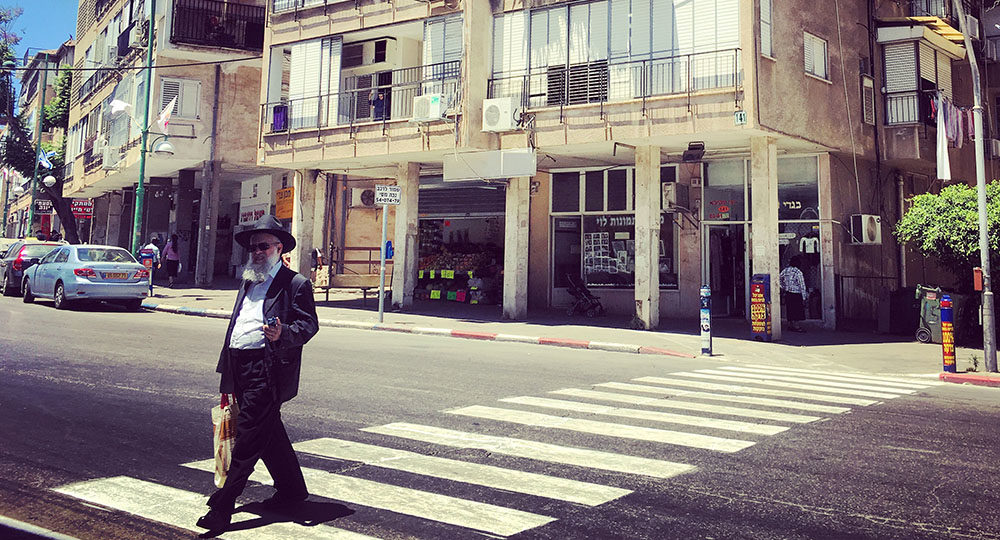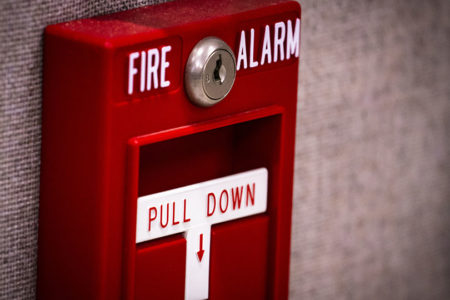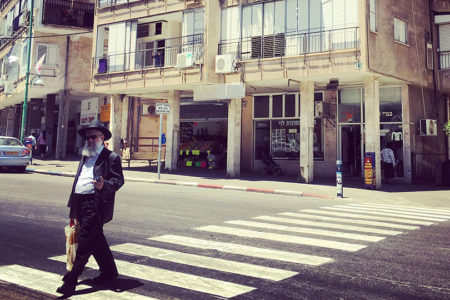What It’s Like to Live in Israel
Israel is a modern country, much like many Western countries. It has a modern economy and offers many of the comforts of the world’s most progressive societies. But, with all of this, it is still a Middle Eastern country with a special flair of the Orient. Because of the cultural structure of people from many different countries forged into one nation, it has a wide range of customs and traditions, many varieties of food, and diverse habits.
There are four to five members in the average Israeli family. Usually both parents must work to maintain a good standard of living. This is possible, however, only because we have a good system of day-care facilities, kindergartens, preschools, and higher education. Of course, child care doesn’t come free. Day-care facilities or kindergartens cost between $1,100 and $2,200 per year, depending on half-or full-day service. Preschools and regular schools are mandatory, sponsored by the government, and divided into religious and secular schools. Both are free, and parents can choose the school they prefer for their children. University fees are relatively affordable.
Depending on the level of education completed, the job situation is fairly promising. With the high immigration rate over the last few years, however, unemployment has risen drastically. For example, most of the new immigrants from Russia are highly educated (doctors, engineers, etc.), but many of them do not work in their former professions because there are not enough jobs in their sector. (We have an excess of 12,000 doctors due to immigration.)
At the age of 18, every Israeli citizen enters the army for at least three years (women serve for two years). Only after that mandatory military service is completed can people actually start their lives and decide the profession they wish to pursue. Learning a profession takes another two to five years (more for people entering the medical field). Most Israelis begin their careers at the age of 25. Some young men are permitted to begin their professional education during their service in the army, as Meno did, but they are required to serve a longer period of time in the army if they choose to follow this course. Meno finished his service in the army as a practical engineer in electronics with four years of experience. That, of course, was a great help in finding a good job. Rarely do young men and women find jobs immediately; therefore, many try to make money abroad or in temporary jobs at home.
Young couples face a major problem in financing housing. Most must rent an apartment until they can save enough capital to purchase an apartment of their own. The prices of apartments vary from city to city. In Jerusalem, Tel-Aviv, and Haifa, for instance, a three–bedroom apartment costs between $130,000 and $160,000. In other parts of Israel, the prices may be lower by $30,000 to $50,000, but these areas are less industrialized, and finding suitable employment is difficult. Bank loans carry high interest rates, and it seems that people pay on their houses for the rest of their lives! On the other hand, rent is also very high. Families must therefore make a decision to either pay rent at $500 to $700 a month and end their lives with nothing to show for it, or take a bank loan, pay about the same monthly rate as rent, and eventually own their own apartments.
The cost of living is relatively high in Israel. According to Israeli authorities, an average five-member family needs about $1,800 a month just to maintain “normal” living conditions. Given the current economic situation, no Israeli families can survive financially on one salary. The minimum income stands at $485 a month, with some employees making even less. If workers are unhappy with their wages, employers just let them go because, with the high rate of unemployment, jobs do not remain unfilled for long. Someone is always there to take your place. Not all families are in a bad position, but over the last few years the financial situation has worsened.
Despite the change of government parties last year, we do not see any new solutions to the urgent problems of our society. As you probably know, one thing governments the world over know how to do very well is raise taxes. Israeli workers pay almost 50 percent of their income in taxes, which includes health insurance and social security. Once a year they also pay a municipality tax of approximately $550 for an average apartment.
Car owners are required to have their vehicles tested once a year for road safety and pay a license fee. Of course, there is also the mandatory insurance plus damage insurance and a radio tax for the use of a radio in a car. Yearly license fees, depending on the size of the engine, run from $110 to $400 for normal private cars. Anyone owning a television must pay a yearly tax of $130 because there are no commercials on Israeli TV.
Water is a treasure in Israel, and therefore the use of it is expensive. Electricity, natural gas, and gasoline also are much more expensive than in the United States (the price of gasoline is $2.60 per gallon).
The yearly inflation rate is approximately ten percent. In the past it was much higher, but, thank God, that has calmed down a bit over the last few years.
A very common means of transportation is the bus. Israelis can get from anywhere to everywhere on a bus. In town, the fare is the same to go one station or 20, as long as you stay on the same line. That is very convenient for most people and saves them the headache of finding a parking space. It seems that Jerusalem is worse than New York when it comes to parking. When you think you’ve found a spot, you discover either that you must pay a fee or that parking is not permitted in that area. The number of cars in Israel has overloaded the road network, and the government is currently investing a great deal of money in building new roads, improving and enlarging existing ones, and building new junctions and interchanges.
Usually when tourists come to Israel, they are shocked by the abundance of guns and other weapons they see on the streets. For us, however, it is a very normal scene. Almost every family has one or more of its male members in the army, either in the regular service or the reserves. These men, of course, bring their weapons home when they are not on duty. Also, people living in the settlements of Judah and Samaria are entitled to ask for a weapon for self-protection.
As you may have already sensed, the security situation is not easy to explain. On the one hand, we as citizens feel very secure living in and walking the streets of this country. On the other hand, there is always the possibility of a terrorist attack, but most likely there are also some well-trained people on the scene to jump in and prevent a disaster, as occurred early in July.
The government recently decided to close the Gaza Strip, Judah, and Samaria to Arab workers who are not citizens of the State of Israel. Only those who have work permits are allowed to cross the pre-1967 Israeli border (called the “green line”).
Because of this border closing, a lot of construction work and other tasks have been left undone, as most of the workers in those fields were Arabs who can no longer enter the country. Consequently, many construction jobs are now being done by new immigrants, and jobs that once were not popular in the Jewish sector are now being done by Jewish workers. It seems that the country has had to change its work structure completely, but it is for the best.
The Arabs are increasing the development of their own industry in the Gaza Strip with the help of the civil administration (i.e., the military authority), which is investing a great deal of capital in local development of the area. This will eventually lead to greater independence of the Arabs in their own towns and reduce the number of Arab workers in Jewish populated areas.
This development will also enable unemployed Israelis to find jobs, although they may not be the kinds of jobs they want or pay high salaries. Nevertheless, it is better to have a job than to be unemployed.
The closing of the Gaza Strip, Judah, and Samaria has helped to reduce the crime rate in Israel. Fewer cars are being stolen, and fewer terrorist attacks have occurred. The government is very satisfied with their decision to close these borders.
Today, we live in the shadow of the “peace process.” The nation is politically divided, and the general feeling is that the land of Israel is for sale. The only question is, How big a bite will be taken? Many signs have appeared around the country protesting the return of the Golan Heights to the Syrians, and many people are wondering if the time has come to prepare such signs for Jerusalem as well.
It may seem that it is very difficult to live in Israel, but no one has died from hunger, and the problem of homelessness, although it does exist, is very small. People like to complain about the economic situation, but the number of new cars traveling on Israel’s roads increases substantially every year. We have our share of poor people, but many simply “cry and buy.”









1 thought on “What It’s Like to Live in Israel”